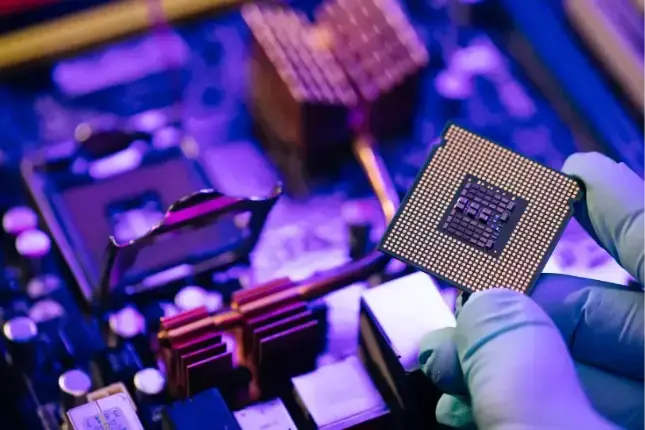Overview of the FHE Track: When Will the Endgame for Web3 Privacy Data Arrive?
Author: Peng Sun, Foresight News
This market is full of paradoxes; the privacy track is disappointing, yet the ideological data privacy is full of hope. Privacy is the eternal dream of the crypto world.
Cryptography is the primitive of blockchain. When we first learned about Fully Homomorphic Encryption (FHE), we were still discussing whether Zero-Knowledge (ZK) could be applied to blockchain, but now we have reached the stage of how to make ZK useful and when to use FHE.
For many people, cryptographic technology feels too distant, with high professional barriers making it difficult for retail investors to participate. In December last year, with the explosion of AI + Crypto, I noticed that some European and American VCs began to pay attention to the FHE track. Until May 5 of this year, Vitalik Buterin reshared an old article from 2020, "Exploring Fully Homomorphic Encryption," stating that "many people have recently shown interest in FHE." Meanwhile, podcasts focused on FHE and FHE competition platforms have also emerged recently.
So, what exactly is FHE, which is hidden in the ivory tower? What are its application scenarios? Why is capital so fond of it? Today, Foresight News reviews 25 projects in the FHE track, which span infrastructure, public chains, DePIN networks, AI, gaming, DeFi, and more.
What is FHE (Fully Homomorphic Encryption)?
Homomorphic Encryption (HE) was first proposed in 1978, aiming to solve the problem of processing data without accessing it. However, until 2009, the technical progress of homomorphic encryption was slow, with only partially homomorphic encryption (PHE) capable of handling single addition or multiplication operations. In 2009, Craig Gentry's 200-page paper A Fully Homomorphic Encryption Scheme proposed the first mechanism for homomorphic operations supporting arbitrary numbers of additions and multiplications, marking a leap in FHE technology.
We say that ZKP is the holy grail of cryptography, but FHE is too, and its vision is even grander. The difference between ZKP and FHE is that ZKP can prove the authenticity and reliability of data to the other party without revealing the actual data, playing a very important role in cost compression in L2.
What FHE aims to achieve is "computable but invisible." Traditional cryptographic algorithms require decryption of ciphertext before performing calculations on the plaintext, making it impossible to process ciphertext. But FHE does not require this; it can compute directly on encrypted data (ciphertext), and the computation results match those of plaintext calculations. For example, we put data A into a black box (encryption), and when we send this black box to the recipient, there is no need to take it out; the recipient can compute directly on the black box without leaking any information about data A, thus completing privacy-preserving computation.
FHE has a wide range of application scenarios, not just in Web3 and blockchain; it targets any privacy data under the entire internet system, whether in advertising, personalized recommendations, AI, gaming, on-chain transactions, MEV protection, block space auctions, on-chain voting, anti-witch attacks, machine learning, healthcare, finance, natural language processing, and more. Of course, the reason FHE has not yet been applied is that its computational requirements are larger and more complex. Currently, the computation speed of FHE is 4 to 5 orders of magnitude slower than plaintext computation (10,000 to 100,000 times).
At the same time, although FHE protects data privacy, it cannot guarantee the authenticity of computations, so it can be combined with ZKP. In recent years, ZKP and FHE have been technically difficult to integrate, and due to the high computational requirements of FHE, its application in the blockchain world has not yet unfolded. However, FHE technology has made significant progress in recent years, and we have also seen the possibility of combining ZK and FHE. With the application of hardware acceleration in the ZKP field, the emergence of DePIN has also brought possibilities to computing networks. Overall, the prospects and imaginative space of FHE are not inferior to ZKP.
Accelerating Hardware
Due to the excessive number of polynomials in the computation process, CPUs clearly cannot handle this efficiently; ultimately, we still need GPUs, FPGAs, and ASICs for hardware acceleration. Lattica AI has tested FHE solutions using GPU acceleration and CUDA; if GPUs can also achieve this, FHE acceleration will be completely decentralized. However, in any case, FPGAs and ASICs are the ultimate choices for acceleration.
Ingonyama
When talking about ZKP, FHE, and hardware acceleration, one cannot overlook the strongest player in this track, Ingonyama. This semiconductor company was founded in 2022 by Shlomovits, a graduate of the Israeli Defense Forces Intelligence Unit 8200 and a serial entrepreneur. The company's first chip is a programmable parallel computing processor similar to a GPU, but designed to accelerate advanced cryptography, particularly Zero-Knowledge Proofs (ZKP) and Fully Homomorphic Encryption (FHE). Although Ingonyama currently focuses on ZKP, there are some computational overlaps between ZKP and FHE, making it logical for Ingonyama to accelerate FHE in the future.
Recently, ZKP hardware acceleration company Accseal (智芯华玺) and Ingonyama reached a strategic partnership, integrating their products Leo and ICICLE v3. Accseal has previously developed ZK ASIC chips, and its collaboration with Ingonyama will significantly reduce the computational costs for users and improve computational performance.
In November 2023, Ingonyama completed a $20 million seed round of financing, led by Walden Catalyst, with participation from Geometry, BlueYard Capital, Samsung Next, Sentinel Global, and StarkWare. In January 2024, Ingonyama completed a $21 million seed round of financing, led by IOSG Ventures, Geometry, and Walden Catalyst Ventures.
Cysic
Cysic is a hardware acceleration company currently positioned as a real-time ZK proof generation and verification layer, providing ZK computing as a service (ZK-CaaS) based on self-developed ASIC, FPGA, and GPU chips. Cysic has already developed FPGA hardware and will launch ZK DePIN chips/devices ZK Air and ZK Pro, building a DePIN network Prover Network.
According to Cysic co-founder Leo Fan, ZK and FHE share many common modules, and much of Cysic's current work can be reused in the FHE field. Leo has also contributed to FHE research for Taiko and HashKey Capital and has published a paper on FHE, indicating that Cysic will also become a hardware accelerator for FHE in the future.
In February 2023, Cysic completed a $6 million seed round of financing, led by Polychain Capital, with participation from HashKey, SNZ Holding, ABCDE, A&T Capital, and the Web3.com Foundation.
Chain Reaction
Chain Reaction is a blockchain chip startup that began mass production of its blockchain chip Electrum in the first quarter of this year. This chip is designed to execute blockchain operations called "hashing" quickly and efficiently and can also be used for mining digital currencies like Bitcoin. Additionally, it plans to launch FHE chips by the end of 2024, allowing users to process data while keeping it encrypted.
In February 2023, Chain Reaction completed a $70 million financing round, led by Morgan Creek Digital, with funds intended to expand its engineering team, bringing the total financing to $115 million.
Optalysys
Optalysys is a hardware acceleration platform dedicated to FHE, building hardware capable of achieving large-scale FHE through optical computing. It has launched an accelerator program that includes simulators, software, and hardware. Optalysys provides acceleration for all common intensive computations in FHE solutions, with its current product being the hybrid photonic chip Optalysys Etile, which combines digital interfaces with silicon photonics technology, integrating with traditional digital electronic devices in multi-chip modules, centered around photonic circuits.
Infrastructure
Zama
Zama is an open-source cryptography company building FHE solutions for blockchain and AI. Founded in early 2020 by Hindi and Pascal Paillier, Paillier is a renowned cryptographer and one of the inventors of Fully Homomorphic Encryption (FHE).
As a service provider, Zama offers FHE solutions for Web3 projects, such as the TFHE-re library, TFHE compiler Concrete, privacy-preserving machine learning Concrete ML, and confidential smart contracts fhEVM. Zama focuses on TFHE (Threshold Homomorphic Encryption), with its TFHE-re being a pure Rust implementation for performing Boolean and integer computations on encrypted data, allowing developers and researchers to have fine-grained control over TFHE to focus on advanced features. fhEVM can integrate TFHE-re into the EVM, making homomorphic operations available as precompiled contracts, enabling developers to use encrypted data in contracts without modifying the compilation tools.
On March 7, 2024, Zama completed a $73 million Series A financing round, led by Multicoin Capital and Protocol Labs, with participation from Metaplanet, Blockchange Ventures, Vsquared Ventures, Stake Capital, Filecoin founder Juan Benet, Solana co-founder Anatoly Yakovenko, and Ethereum co-founder and Polkadot co-founder Gavin Wood. The funds raised will be used to continue research and development of its FHE tools.
PADO
PADO is a decentralized computing network based on zkFHE, aiming to develop a multifunctional zkFHE algorithm capable of supporting ML applications and even broader VM functionalities. Its application scenarios are more extensive, allowing any computing power to connect to the network as a node and provide services. Currently, PADO Labs is building the PADO extension, PADO developer toolkit, and node SDK basic components. The PADO extension serves as a one-stop portal for users to generate data proofs across various platforms.
The most important technical achievement of PADO is the combination of zk-SNARK with FHE, ensuring the authenticity and verifiability of privacy data computations. At the same time, PADO also integrates MPC, IZK (interactive zero-knowledge proofs), and zkFHE. According to PADO's technical roadmap, its short-term focus is on enhancing specific functionalities of (F)HE solutions and launching customized products to support zkFHE applications. Currently, the primary work is also to prioritize optimizing FHE algorithms and integrating ZK components to ensure verifiability. PADO's early HE solutions support linear operations, reducing the ZK proof time for proving ciphertext and additive homomorphic operations to about 0.7 seconds, with future reductions possible to below 0.1 seconds. Compared to Zama's solution, PADO can halve the computation time for homomorphic comparison operations. PADO will also expand support for larger plaintext spaces, such as u8/u16/u32, improving performance by at least 2 times compared to Zama. The general zkFHE performance can also be enhanced by 3 to 5 times with Zama's assistance. In terms of programming languages, PADO also supports common languages like Python and Rust.
On the application layer, PADO's current main focus is on data-sharing scenarios related to the AO and Arweave ecosystems. In April of this year, PADO collaborated with AO to launch the Verifiable Confidential Computing (VCC), which will be built on AO. PADO will gradually establish decentralized computing units based on AO and use the Arweave blockchain as a privacy data storage layer. Users can encrypt their data using PADO's zkFHE technology and securely store it on the Arweave blockchain. Any computation requests within the AO ecosystem will be sent to PADO computing nodes through the AO scheduling unit, and the computing unit will send computation tasks to zkFHE computing nodes. After these computing nodes retrieve the user's ciphertext data from Arweave, they will complete the corresponding fully homomorphic computation and provide computation integrity proofs based on the computation request.
In 2023, PADO completed a $3 million seed round of financing.
Sunscreen
Sunscreen is a privacy startup aimed at enabling engineers to use cryptographic technologies like FHE to easily build and deploy private applications. Sunscreen has open-sourced its FHE compiler, which is a Web3-native compiler that converts ordinary Rust functions into privacy-preserving FHE equivalent functions, providing optimal performance for arithmetic operations (such as DeFi) without requiring hardware acceleration. The FHE compiler also supports the BFV FHE scheme. Sunscreen is also building a ZKP compiler compatible with the FHE compiler, ensuring computational integrity when combined with FHE, but currently, proving homomorphic operations is relatively slow. At the same time, Sunscreen is looking for decentralized storage systems for storing FHE ciphertext.
In terms of specific roadmap planning, Sunscreen will first support private transactions in the testnet, then support predetermined private programs, and finally allow developers to write any private programs using its FHE and ZKP compilers.
In July 2022, privacy startup Sunscreen completed a $4.65 million seed round of financing, led by Polychain Capital, with participation from Northzone, Coinbase Ventures, dao5, and individual investors including Naval Ravikant and Entropy founder Tux Pacific. Sunscreen was founded by Ravital Solomon and MacLane Wilkison, co-founder of the privacy network NuCypher, aiming to facilitate engineers in building applications based on Fully Homomorphic Encryption. Previously, Sunscreen had raised $570,000 in a Pre-Seed round.
SherLOCKED
SherLOCKED is a privacy-supporting infrastructure based on FHE for EVM blockchains, allowing developers to write custom smart contracts that can operate on encrypted data on the blockchain. In simple terms, it can encrypt public transaction data on the chain, making it inaccessible to anyone, as the data on the blockchain will appear in encrypted form.
There is a formula: ZK + MPC + FHE = SherLOCKED, specifically comprising three components: the SherLOCKED SDK, node network, and zkVM computing infrastructure. When users send transactions to the smart contract, before invoking on-chain functions, the node network first encrypts the data using MPC and passes the encrypted data to the SDK. Next, the SDK calls the smart contract function with the encrypted data as parameters, and the smart contract operates on the encrypted data (ciphertext). The computation on the encrypted data consumes a large amount of Gas, so SherLOCKED outsources it to the zkVM-based RISC Zero proof computing machine (Bonsai), which performs the computation and provides ZK proofs. Finally, the proof is verified by relayers and validators on the chain. SherLOCKED can be deployed on any EVM network.
SherLOCKED was built by Nitanshu from Rize Labs during the ETHGlobal-hosted ETHOnline hackathon in October 2023 and was a finalist award winner. Currently, the code repository for SherLOCKED on GitHub has not been updated for 7 months.
Fair Math
Fair Math is a research company adopting an open-source and community-oriented approach, focusing on developing FHE-based privacy protection technologies. In April 2024, Fair Math released the "Collaborative FHE-(E)VM Declaration," attempting to design the FHE-(E)VM in a modular way, allowing different versions of FHE-(E)VM to coexist while using a normative version as a standard reference for developing applications supporting FHE.
The declaration also proposes to build an FHERMA competition platform, a challenge platform for FHE developed in collaboration with OpenFHE, aimed at educating and incentivizing the development of FHE through uniquely structured competitions. According to its plan, the platform will initiate over 25 FHE challenges in 2024. Poly Circuit is an application-layer FHE component library built through the FHERMA competition; once the winners of the challenges are determined, their solutions will be added to the repository via PR. OpenFHE-rs is a joint project between Fair Math and OpenFHE, representing the most comprehensive FHE Rust library available for Rust developers.
In February 2024, Fair Math completed a $1.4 million pre-seed round of financing, led by gumi Cryptos Capital, Inception Capital, and Polymorphic Capital, to promote the adoption of FHE.
AntChain
AntChain TrustBase is an open-source technology system based on AntChain, including wide-area consensus algorithms, zero-knowledge proofs, Fully Homomorphic Encryption, and more.
Public Chains
Fhenix
Fhenix is an Ethereum L2 supported by FHE Rollups and FHE Coprocessors, fully compatible with EVM and providing comprehensive support for Solidity, capable of running smart contracts with on-chain confidential computation based on FHE. Fhenix does not use zkFHE; it adopts Optimistic Rollup instead of ZK Rollup, using Zama's FHE to provide on-chain confidentiality through fhEVM, focusing on TFHE (Threshold FHE).
On April 2, 2024, Fhenix announced a collaboration with EigenLayer to develop FHE coprocessors, aiming to introduce FHE into smart contracts. The so-called "FHE coprocessors" focus on computing encrypted data without needing to decrypt it first, eliminating the need to handle FHE computation tasks on Ethereum, L2, or L3, as they will be processed by designated processors. The FHE coprocessors will be protected by Fhenix's FHE Rollup and EigenLayer's staking mechanism. According to the roadmap, Fhenix plans to launch its mainnet in January 2025.
In September 2023, Fhenix completed a $7 million seed round of financing, led by Sora Ventures, Multicoin Capital, and Collider Ventures, with participation from Node Capital, Bankless, HackVC, TaneLabs, and Metaplanet. In early 2024, Fhenix will release a public testnet and support ecosystem application development.
Inco
Inco Network is a universal privacy protection layer and modular confidential computing L1 blockchain for Web3, providing privacy protection for on-chain applications. It combines Ethereum EVM with FHE and is secured by Ethereum through EigenLayer, allowing programs to operate and compute encrypted data without decryption, without using TEE, circuits, off-chain storage, or coprocessors, all done on-chain with native randomness. Inco has also launched the Gentry testnet to address privacy protection challenges in Web3. Additionally, Inco supports applications in gaming, DeFi (including dark pools, private lending, and blind auctions), and enterprise solutions (such as confidential stablecoins, private RWAs, and private voting).
In April 2024, Inco collaborated with EigenLayer's verification service project Ethos, allowing not only the sharing of Ethereum's economic security but also enabling DApps on Ethereum to utilize Inco's confidential computing; Inco also partnered with the modular interoperability protocol Hyperlane, extending privacy data storage and computation to the modular blockchain ecosystem.
Inco has established a strategic partnership with Zama in protocol development, and its fhEVM also adopts Zama's TFHE solution. Inco's fhEVM is compatible with the Ethereum toolset (Remix, Hardhat, Metamask, etc.) and the Solidity language. Other advisors for Inco include Polygon co-founder Sandeep Nailwal and Canonical GP and Lightspeed Ventures investment partner Anand Iyer.
In February 2024, Inco Network completed a $4.5 million seed round of financing, led by 1kx, with participation from Circle Ventures, Robot Ventures, Portal VC, Alliance DAO, Big Brain Holdings, Symbolic, GSR, Polygon Ventures, Daedalus, Matter Labs, and Fenbushi.
Octra
Octra is an FHE blockchain network supporting isolated execution environments, proposing a new type of FHE conducted on Hypergraphs, referred to as HFHE. According to official documentation, HFHE can be compatible with any project and can operate independently. Most of Octra's codebase is developed using OCaml, AST, ReasonML (the language for interacting with Octra blockchain network's smart contracts and applications), and C++. This approach is relatively new, with limited discussion in academia. The security of this solution remains unverified and requires validation.
Octra introduces a new consensus mechanism based on machine learning, utilizing participant nodes and support vector machines for load management, selecting confirmation routes based on a series of previously confirmed experiences, verifying results, and ensuring the process is tamper-proof.
The lightweight Octra client allows nodes to run on Raspberry Pi, personal computers, servers, cloud servers, or mobile phones. Currently, the validation process of the Octra Network is in the testing and debugging phase, and the testnet has not yet been launched.
Shibarium
Shibarium is the Layer2 solution for Shiba Inu, developing a new Layer3 blockchain using the fully homomorphic encryption technology from cryptography company Zama, the name of which has not yet been disclosed. The TREAT token is the "utility and governance token" for its new privacy-focused Layer3 blockchain, which will be built on the Ethereum Layer2 blockchain Shibarium, specifically designed for confidential computing in blockchain and AI applications, such as smart contracts and machine learning.
TREAT will be the last non-stable token in the Shiba Inu ecosystem, which will launch a new token called Shi later this year. The existing tokens in the ecosystem include the memecoin SHIB, BONE (the governance token of Shibarium), and LEASH (a fixed supply token held by loyal Shiba Inu users, providing them with BONE rewards).
In April 2024, Shiba Inu raised $12 million by selling its unissued TREAT tokens to non-U.S. venture capitalists, with participation from Polygon Ventures, Foresight Ventures, Mechanism Capital, Big Brain Holdings, Shima Capital, Animoca Brands, Morningstar Ventures, Woodstock Fund, DWF Ventures, Stake Capital, and Comma 3 Ventures.
Secret Network
Secret Network is a privacy public chain and Web3 privacy protection computing layer. In its Secret 2.0 plan, the team is developing a TFHE Layer1 network based on Fhenix and developing privacy-preserving Rollups as a supplement.
DePIN
Arcium (formerly Elusiv)
Arcium is a DePIN network for parallel confidential computing on Solana. Founded by Yannik Schrade, Julian Deschler, Nicolas Schapeler, and Lukas Steiner, it was previously known as the zero-knowledge compliance privacy protocol Elusiv, rebranding to Arcium on May 8, 2024.
Arcium primarily supports Solana, enabling developers and applications in DeFi, DePIN, AI, and more to flexibly access trustless, verifiable, and high-performance confidential computing capabilities. Arcium is not a blockchain but requires calling the underlying blockchain's DA layer and consensus layer, allowing developers to deploy confidential smart contracts across different blockchains while also providing non-blockchain users the ability to configure blockchain layer trust models according to their needs.
The Arcium network consists of two main parts: the Arx network and the Multi-Party Execution Environment (MXE). The MXE combines MPC, FHE, ZKP, etc., to achieve secure computation on encrypted data. The Arx network is a decentralized node network (each node is called Arx), where anyone can contribute to the network by running a node. Arcium has launched an incentivized private testnet and invited 100 individual developers or team members to participate in testing, with selected participants able to run MPC nodes or intermediary nodes or build on-chain applications using MXE.
In November 2022, Elusiv completed a $3.5 million seed round of financing, led by LongHash Ventures and State Stripities Ventures, with participation from Jump Crypto, NGC Ventures, Big Brain Holdings, Anagram, Cogitent Ventures, Equilibrium, Marin Ventures, Token Ventures, Moonrock Capital, Monke Ventures, and Solanafm.
In May 2024, Arcium completed a $5.5 million strategic financing round, led by Greenfield Capital, with participation from Coinbase Ventures, Heartcore Capital, Longhash VC, L2 Iterative Ventures, Stake Facilities, Smape Capital, Everstake, and Solana co-founder Anatoly Yakovenko and Monad co-founder Keone Han. Currently, Arcium's total financing has reached $9 million. This round of financing will be used to provide a trust-minimized and configurable cryptographic computing framework for developers and blockchain applications.
Privasea
Privasea is a DePIN+AI project that integrates Fully Homomorphic Encryption Machine Learning (FHEML) into a distributed computing network and has launched a DApp utilizing FHE technology called "ImHuman," ensuring the secure execution of "Proof of Humanity" (PoH). Specifically, after users create an ImHuman account, if they forget their password, it cannot be recovered; ImHuman will use the front camera to scan facial vectors and encrypt them directly on the phone without sending them to any server, and Privasea will not have access. The encrypted facial vectors will be sent to the Privasea server and minted into a personal NFT, completing the proof of humanity, and users who complete PoH will receive exclusive airdrops. Currently, ImHuman is only available on Google Play and will soon be launched on the App Store.
Privasea has also built the AI DePIN infrastructure Privasea AI Network, with the testnet now live. By establishing a decentralized computing network, this testnet provides scalable distributed computing resources for FHE AI tasks, reducing the risks of centralized data processing. Privasea's FHE solution is supported by Zama's specific machine learning.
In March 2024, Privasea completed a $5 million seed round of financing, with participation from Binance Labs, Gate Labs, MH Ventures, K300, QB Ventures, and CryptoTimes. In April, Privasea completed a new round of strategic financing, with participation from OKX Ventures, Laser Digital (controlled by Nomura Group), and SoftBank-backed incubator Tanelabs.
Cluster Protocol
Cluster Protocol is a DePIN computing proof protocol aiming to build a decentralized AI model GitHub, utilizing FHE integration to provide secure and consistent rewards for GPU providers, thereby supporting individuals and SMEs worldwide.
In March 2024, Cluster Protocol completed a seed round of financing, with participation from Pivot Ventures and Genesis Capital, specific amounts have not been disclosed. Cluster Protocol will also join the incubation acceleration program under Pivot.
Mind Network
Mind Network is an FHE restaking layer for DePIN and AI, supported by Zama, aiming to achieve "HTTPZ" (end-to-end encrypted internet vision). Its products include the FHE restaking solution MindLayer for AI and DePIN networks, the FHE-authorized invisible address protocol MindSAP, and the FHE DataLake MindLake built on the FHE validator network through MindLayer. In MindLayer, users can restake BTC and ETH's LST tokens into Mind Network and introduce FHE-enhanced validators, ensuring end-to-end encryption for the verification and computation processes of AI and DePIN networks, while introducing a smart proof (PoI) consensus mechanism designed for AI machine learning tasks to ensure fair and secure distribution among FHE validators. FHE computation can also be accelerated through hardware. MindLake is a data storage Rollup designed for computing on-chain encrypted data.
Additionally, Mind Network is launching Rollup chains in collaboration with AltLayer, EigenDA, and Arbitrum Orbit. The Mind Network testnet is now live.
In June 2023, Mind Network completed a $2.5 million seed round of financing, with participation from Binance Labs, Comma3 Ventures, SevenX Ventures, HashKey Capital, Big Brain Holdings, Arweave SCP Ventures, and Mandala Capital. In the same month, Mind Network was selected for Binance Labs' fifth incubation program and was also selected for the Chainlink BUILD program, receiving an Ethereum Foundation Fellowship Grant.
Gaming
zkHoldem
zkHoldem is an on-chain Texas Hold'em game supported by ZKP and FHE, currently live on Manta Network and soon to be launched on Arbitrum.
Framed!
Framed! is an on-chain "killer" (mafia) game supported by Inco Network and fhEVM, which was a finalist at ETHGlobal New York in September 2023. Framed!'s official Twitter has not been updated since December last year, suggesting it may no longer be operational.
DeFi
Penumbra
Penumbra is a fully private cross-chain PoS network and DEX in the Cosmos ecosystem, established in 2021. Penumbra operates a shielded pool that allows for shielded transfers, staking, and swaps, using Threshold Homomorphic Encryption (TFHE) to execute shielded swaps point-to-pool, with these token swaps processed as batch transactions. Penumbra aims to consolidate all asset trading in the Cosmos ecosystem into a single shielded pool.
In November 2021, Penumbra completed a $4.75 million seed round of financing, led by Dragonfly Capital, with participation from Interchain Foundation, Lemniscap, Robot Ventures, Volt Capital, Figment, Strangelove Ventures, Informal Systems, and ZKValidator.
AI
BasedAI
BasedAI is a decentralized AI project based on ZK-LLM, similar to Bittsesor, capable of integrating FHE with any LLM connected to its network. The deep compression principle of BaseAI Cerberus Squeezing can also improve the operational efficiency of LLMs, reducing computational load while ensuring data remains encrypted during processing and transmission. Currently, the BasedAI Prometheus testnet is nearing completion, with Cyan set to begin soon.
BaseAI has issued tokens but has explicitly stated it will not conduct airdrops.
Polyverse AI
Polyverse AI is a global AI data engine supported by privacy, Web3, and FHE, aiming to become a "decentralized Google," addressing AI data privacy issues through FHE and ZKP. Its AI data layer can support generative AI, DeAI, DeFi, DePIN, metaverse, LLM, and more.
Sight AI
Sight AI is a decentralized AI inference network using FHE, providing a secure, private, and collaborative network for future DeAI inference, introducing vFHEML (verifiable FHE machine learning) and utilizing ring-based SNARG to accelerate proof generation. Considering the challenges of integrating FHE with ZK-SNARK, Sight AI does not use ZK-SNARK for data verifiability but combines SNARG with FHE to create vFHE, reducing computational requirements and speeding up proof generation.

















